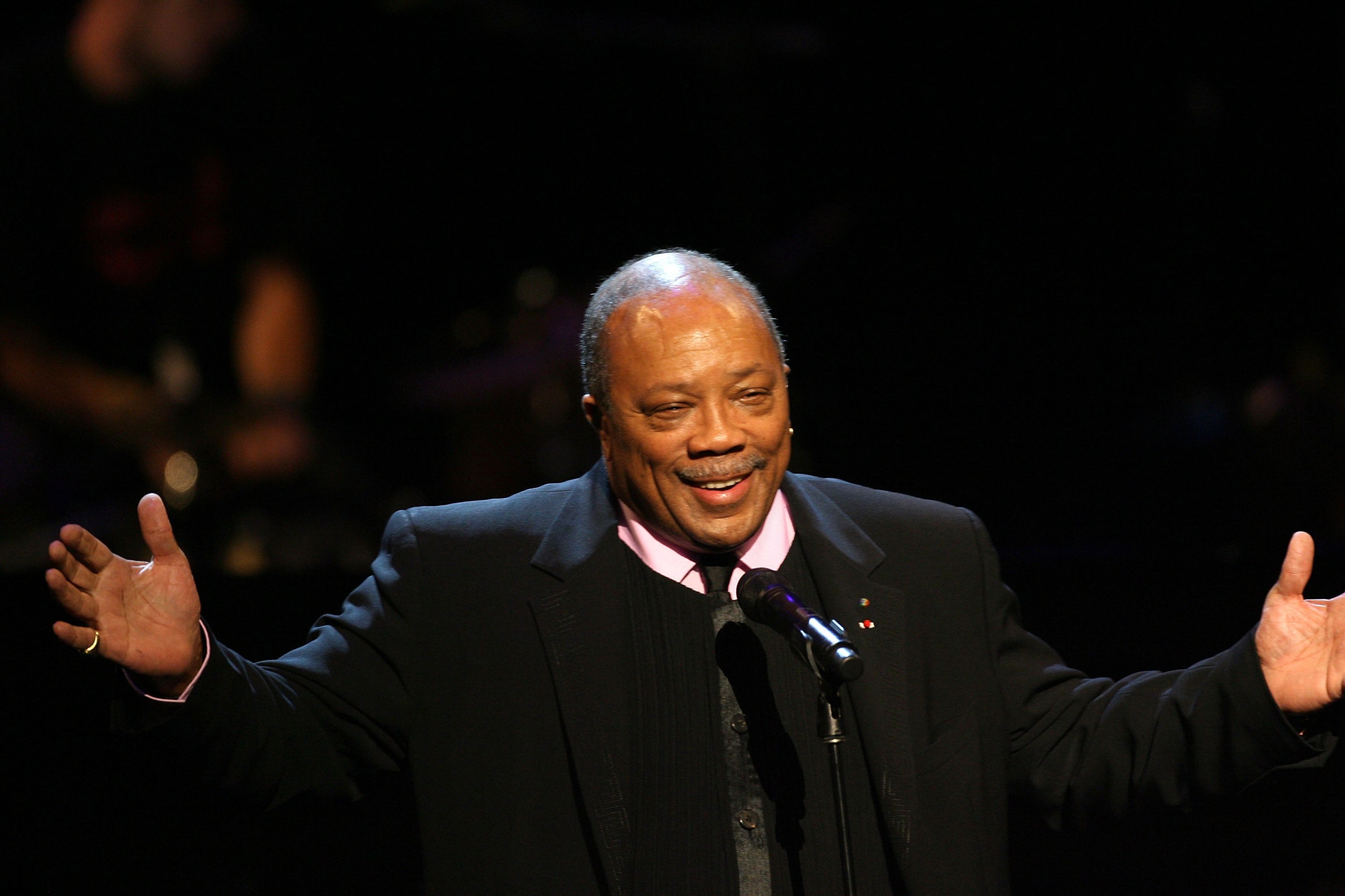In Quincy, the 2018 documentary meant to capture the totality of Quincy Jones's contributions to the last 70-plus years of music, film, and television, he spoke about his time living in Paris in the late 1950s and working under acclaimed composer Nadia Boulanger. "There are only 12 notes, and you should investigate what everyone did with those 12 notes," she said to him, as he explains in the doc. It was the lesson of not just the outward simplicity of music, but the lineage and vast worlds contained within its grand history. It was a call to be a student of the art, just as much as a player.
Jones, who died on Sunday at the age of 91, leaves behind an enormous absence in entertainment. He was the ultimate connective tissue in making the greatest media of the last few eras of entertainment. He orchestrated Count Basie's band when they played for Frank Sinatra. He composed the theme for Sanford and Son, and scored films like In The Heat of the Night, The Italian Job, and The Color Purple. He produced The Fresh Prince of Bel-Air, co-founded Vibe magazine, brought jazz and hip-hop together for his Back On The Block album. Off The Wall, Thriller, Bad—there is not one medium, genre, or business within entertainment that did not have Jones's hand in it. He was just as eager to teach the intricacies of making good music and art as he was to tell those ribald stories about Sinatra, Michael Jackson, or Prince. His death is not a surprise, but it is upsetting all the same, less because of what he's done and more because of how little the modern entertainment industry resembles the kind of place that fosters that kind of artistic talent and allowed him to thrive.
There was never going to be another Quincy Jones. The streets are paved with people who have tried and come up short; today's playing field cannot foster it. Hollywood is in a slump as more studios are controlled by private equity firms that believe in the worst approaches to creativity and originality. The music industry is a mess, forever consolidating and forcing artists to prioritize their image and branding over their actual work. That's not what Jones believed in. He believed in music as a spiritual process, as he also mentioned in that infamous Vulture interview:
When you go after Ciroc vodka and Phat Farm and all that shit, God walks out of the room. I have never in my life made music for money or fame. Not even Thriller. No way. God walks out of the room when you’re thinking about money. You could spend a million dollars on a piano part and it won’t make you a million dollars back. That’s just not how it works.
Music is a language that only a select few ever get a chance to speak, and even fewer get to master. You had to take it seriously, understand the chemistry and schematics of what makes a good record. Jones was the first one to teach me that a good song is the only thing that matters: more than an artist's talent, intellect, or whatever else. A good song is undeniable. It's easy to dismiss Jones's late-period dismissal of current pop music as just an old man out of touch, but his explanation had truth to it. The best artists today are the rare examples afforded time to devote attention to their craft, the knowledge and theory that comes with relentless understanding and studying.
Jones's death closes the chapter on a singular generation of entertainment and culture. Sunrise, sunset. The worrisome part is that there doesn't seem to be anything of value to replace it. Some of this can be attributed to the older generations, holding on with clenched fists to all they have, but it can also be attributed to the degradation and devaluation of arts education over the past 20 years. Art cannot thrive when its only purpose is to make money.
Inadvertently, Jones's track record of producing the biggest hits in the world for superstar musicians created a voracious marketplace fixated on that scale of success. But he was the product of years of studying under classical musicians, and jazz and bebop maestros. He was learning from his environments as much as he was dictating them. And no one could build a bridge on a song like that man. Jones investigated and worked those 12 notes with more precision and ingenuity than anyone.






